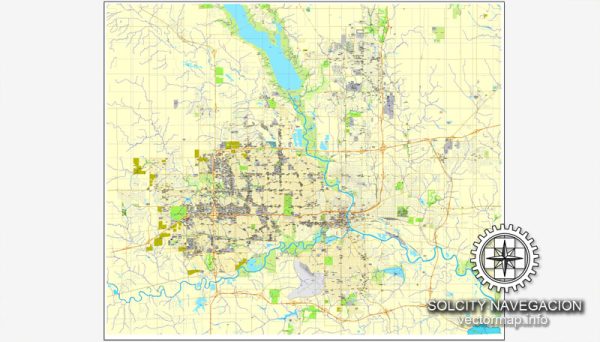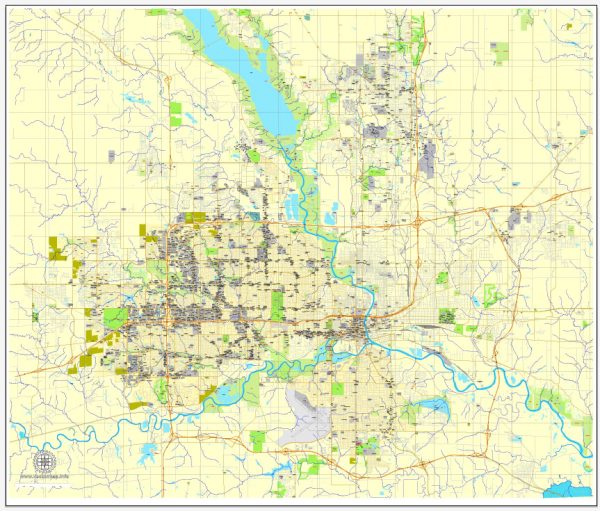Des Moines, Iowa, has a rich history that reflects the broader story of the United States. Here is a brief description of the city’s history in the context of U.S. history:
- Early Settlement: The area that would become Des Moines was originally inhabited by various Native American tribes, including the Sauk and Meskwaki. European exploration and settlement began in the early 19th century when French trappers and traders arrived in the region. The city’s name, “Des Moines,” is derived from the French phrase “Rivière des Moines,” meaning “River of the Monks.”
- Development as a Trading Post: Des Moines was initially established as a trading post in the mid-1830s. It played a significant role in the westward expansion, serving as a stop along the Des Moines River for settlers moving further into the frontier.
- Capital City: Des Moines was designated as the capital of the Iowa Territory in 1837, and it remained the state’s capital when Iowa achieved statehood in 1846. The state’s government and political institutions have been central to the city’s identity ever since.
- The Civil War Era: During the American Civil War, Des Moines played a role in supporting the Union effort. Camp Dodge, a military training camp, was established in the area, and the city contributed troops and resources to the Union cause.
- Industrial Growth: In the late 19th and early 20th centuries, Des Moines experienced significant industrial and economic growth. It became a hub for the production of agricultural machinery and processed foods, contributing to the state’s agricultural economy.
- Cultural and Civic Developments: The city’s cultural and civic life continued to flourish with the construction of landmarks like the State Capitol Building and various museums, including the Des Moines Art Center and the Science Center of Iowa.
- Social and Political Movements: Des Moines was a hub for several social and political movements in the 20th century. The city played a role in the civil rights movement and hosted Martin Luther King Jr. for a notable speech in 1959. It was also an important stop on the campaign trail for presidential candidates during the Iowa Caucuses.
- Economic Diversification: In the late 20th century, Des Moines transitioned from an industrial and manufacturing economy to a more diversified economic base. It is now a major financial and insurance center, earning the nickname “Hartford of the West” due to its concentration of insurance companies.
- Cultural Attractions: Des Moines boasts a variety of cultural attractions, including the Iowa State Fair, one of the largest and most famous state fairs in the U.S. The city also hosts numerous festivals, performing arts venues, and a thriving food scene.
- Today: Des Moines is a vibrant and growing city, known for its strong economy, cultural offerings, and as an influential political center during election seasons. It continues to be a vital part of Iowa’s identity and a reflection of the broader historical development of the United States.
This description provides an overview of Des Moines’ historical significance and its place in the broader context of U.S. history.




 Author: Kirill Shrayber, Ph.D.
Author: Kirill Shrayber, Ph.D.